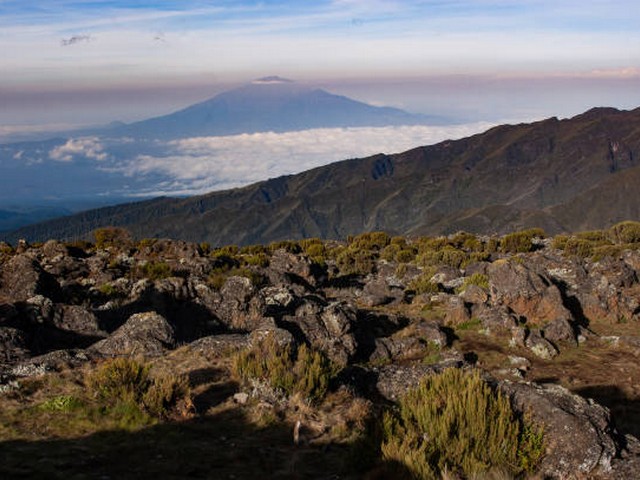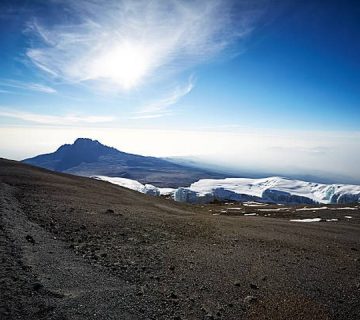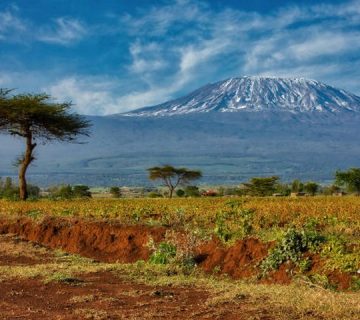Unveiling the Secrets of Kilimanjaro Trekking Cost For Solo Travellers
The Ultimate Adventure Awaits!
Standing majestically as the roof of Africa, Mount Kilimanjaro beckons adventurers and solo travellers from around the globe. Are you dreaming of conquering its summit, Uhuru Peak, but are concerned about the costs? Fear not! At the Kilimanjaro Centre for Trekking and Ecotourism (KCTE), we understand the nuances of planning this life-changing journey on your own. Today, let’s explore the various facets of Kilimanjaro trekking costs for solo travellers and how you can make this quest both memorable and affordable.
A) Understanding Kilimanjaro Trekking Costs
Embarking on a solo trek to Kilimanjaro is an exhilarating decision. However, understanding the costs involved is crucial for effective planning. Here’s what you need to consider:
1. Route Selection
Choosing the right route can significantly affect your trekking expenses. Some routes like Marangu offer shared hut accommodations which can be less costly compared to camping routes like Machame or Lemosho. Each route offers different experiences and scenic value, so choose based on your budget and preference.
2. Seasonal Variations
The cost of trekking can vary depending on the season. The peak seasons (January to March and June to October) typically have higher costs due to the demand. If you’re looking for a budget-friendly option, consider climbing during the shoulder seasons (April, May, and November).
3. Included Services
When you book a Kilimanjaro trek, your package should typically include park fees, camping fees, guide and porter wages, food, and transportation to the trailhead. At KCTE, we ensure transparent pricing and no hidden costs.
B) Breaking Down Solo Traveller Costs
1. Group vs. Solo: Understanding the Difference
Most tour operators offer group treks where individual costs can be shared. As a solo traveller, you might be thinking, "Are there any additional charges?" Yes, there could be a single supplement fee to cover the cost of personal guides and porters. Despite this, choosing a reputed operator like KCTE can ensure you get the most value for your money, tailored attention, and utmost safety.
2. Average Cost for Solo Travellers
The average cost for solo travellers can range from $2,000 to $4,000 depending on the chosen route and the level of luxury. At KCTE, we offer various packages tailored to solo travellers ensuring a fulfilling and hassle-free experience.
C) Why Choose KCTE for Your Solo Kilimanjaro Trek?
1. Customized Packages
At KCTE, we specialize in creating tailored experiences that cater to your personal preferences and fitness levels. Whether you’re looking for a leisurely pace or a challenging adventure, we have the right package for you.
2. Expert Guidance and Support
Our team comprises experienced and certified guides who not only know Kilimanjaro like the back of their hand but also excel in personal care and safety protocols. Their expertise is particularly crucial for solo travellers.
3. Safety and Sustainability
Your safety is our top priority. We follow stringent safety measures and promote sustainable trekking practices to ensure both your well-being and the preservation of this magnificent mountain.
D) Preparing for Your Trek: Tips for Solo Travellers
1. Physical Preparation
Begin your physical preparation at least six months before your trek. Focus on cardiovascular fitness, strength training, and hiking to condition your body.
2. Packing Essentials
Invest in good quality trekking gear. Essentials include thermal clothing, a sturdy backpack, a sleeping bag suitable for extreme temperatures, and comfortable hiking boots.
3. Mental Readiness
The climb to Kilimanjaro’s summit is not just a physical challenge but also a mental one. Prepare yourself mentally by setting realistic goals and maintaining a positive mindset.
E) Frequently Asked Questions
Q1: Is it safe to trek Kilimanjaro solo?
Absolutely! With KCTE, your safety is assured. Our guides and porters are well-trained to handle any situation that may arise during your trek.
Q2: How long does it take to climb Kilimanjaro?
It typically takes about 5 to 9 days, depending on the route you choose. We recommend the 7-day Machame route for solo travellers for adequate acclimatization.
Q3: What is the success rate for solo travellers reaching the summit?
Our clients have a high success rate, largely due to our experienced guides and well-thought-out acclimatization strategies.
Q4: Can I join a group as a solo traveller?
Yes, we offer the option to join existing groups which can not only reduce costs but also enhance your trekking experience by meeting new people.
F) Call to Action
Are you ready to embark on this remarkable journey and achieve the extraordinary? Join us at Kilimanjaro Centre for Trekking and Ecotourism (KCTE), and let us guide you to the summit through a tailored, safe, and unforgettable Kilimanjaro trekking experience. Book your adventure today and conquer the highest peak in Africa with confidence and style!
Let this be the year you touch the sky. Let’s climb Kilimanjaro together!




